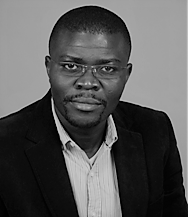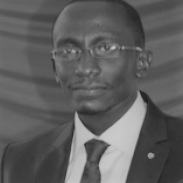
The Initiative to Develop African Research Leaders (IDeAL) is a high-quality training programme designed to develop outstanding young African scientists into world-class research leaders. It is hosted by KEMRI – Wellcome Trust Research Programme in Kenya. IDeAL is available to young researchers, from Undergraduate Research Attachments to Postdoctoral Fellowships, with the aim of keeping scientists at African institutions through a defined programme of recruitment, supervision and mentorship with the goal of establishing unique career paths for all students and fellows.
IDeAL is one of the 11 initiatives under DELTAS Africa (Developing Excellence in Leadership, Training and Science in Africa) funded by the African Academy of Sciences (AAS)’s and Alliance for Accelerating Excellence in Science in Africa (AESA) and supported by the New Partnership for Africa’s Development Planning and Coordinating Agency (NEPAD Agency) with funding from the Wellcome Trust and the United Kingdom government.
IDeAL Team comprises over 200 persons including postdoctoral fellows, students, interns, mentors, supervisors, and the secretariat.
For more details on the schemes supported under IDeAL, visit the Programmes Page.
IDeAL builds on previous capacity strengthening activities at the KEMRI – Wellcome Trust Research Programme. As illustrated in figure below capacity building at the Programme has gone through different phases. During the earliest phase, 1989-2008, the emphasis was on building core structures to support research and training including high quality laboratory, clinical, field and ICT infrastructure. As these core structures expanded there was a gradual increase in the number of local researchers training at Masters and PhD levels, albeit on an ad hoc basis. It eventually became clear that there was need to develop a coherent framework to manage and scale up research training activities at the Programme. This was achieved through the awarding of a Strategic Award amounting to 12 Million Pounds by the Wellcome Trust. The award supported research training activities from 2008 to 2015.

As a result of the Award capacity building activities in the Programme expanded markedly. In addition, the award facilitated the centralisation and harmonization of capacity building management by providing a secure financial base that enabled long term planning of career paths.
In brief, between 2008 and 2015, 52 students were support to undertake PhDs and also received a further one year Postdoctoral support. 32 of these are Postdoctoral Reseachers at KWTRP and elsewhere while 8 are lecturers in local Universities. 5 have already received Wellcome Trust Training Fellowships. 88 people were supported for Masters training either directly or through support leading to the successful application for external Masters Fellowships (e.g. the Wellcome Trust Masters Fellowship). We have provided internships to 172 recent Kenyan graduates. Over 30 of who have now progressed through the research training to Postdoctoral level. Majority of the rest are either research assistants or Masters students elsewhere.
Importantly, work supported by the SA has contributed to development of a number of health policies and practice guidelines in Kenya and Globally particularly for prevention and treatment of early childhood illnesses. In addition, it has been presented in over 200 conferences and resulted in over 300 peer-reviewed publications (>150 first author papers – >50 in journals with an Impact Factor of >4, and > 150 non-first author papers – >30 in journals with an Impact Factor of >4.
Vision
African-led research solving African and global health issues
Mission
To generate a critical mass of African Research Leaders
Objective
Attract – To attract young African to research
Train – To provide high quality research training
Retain – To support the retention of African researchers in the Continent
Nurture – To nurture emerging African research leaders



Prof. Philip Bejon
 Email : PBejon@kemri-wellcome.org
Email : PBejon@kemri-wellcome.org  Phone : +07-5555-565
Phone : +07-5555-565 Current Students
Past Students
I first came to Kilifi in 2002 to conduct Phase I and IIb clinical trials of a candidate malaria vaccine based on viral vectors. I returned to the University of Oxford in 2006 to complete specialist clinical training as a clinical lecturer, and then was appointed as a senior fellow in the NIHR Oxford Biomedical Research Centre. These posts allowed me to remain active in malaria research, leading further trials of GSK’s candidate malaria vaccine “RTS,S”, and as a member of the Malaria Vectored Vaccine Consortium funded to test viral vectored malaria vaccines in several sites in Africa including Kilifi. An MRC Clinician-Scientist Fellowship, allowed me to return to be resident full-time in Kilifi in 2013, and I became Executive Director of the KEMRI-Wellcome Trust Research Programme in September 2014.


Prof. Tom Williams
 Email : TWilliams@kemri-wellcome.org
Email : TWilliams@kemri-wellcome.org Tom Williams is a Clinical Professor in the Department of Medicine at Imperial College, London with more than 25 years of experience in research. He has lived and worked in the tropics for the majority of this time, where he has conducted a programme of work investigating the genetics of host resistance to infectious diseases, with a particular focus on the inherited defects of red blood cells. Tom has been based at the KEMRI-Wellcome Trust Research Programme in Kilifi, Kenya, for more than 17 years from where he has developed a wide network of research collaborations with partners in multiple countries within the region. His work spans from clinical epidemiology to genetic, functional and immunological laboratory-based approaches. He is a clinically active accredited specialist in Paediatrics with extensive experience in clinical surveillance. In collaboration with Anthony Scott he established, and has managed from its inception in 2001, the Kilifi Health and Demographic Surveillance System (KHDSS) – the largest HDSS in sub-Saharan Africa.


Prof Wambui Kogi-Makau
Affiliations:


Dr. Justin Pulford
Affiliation(s):
Liverpool School of Tropical Medicine, UK
Justin completed a PhD in Behavioural Science at the University of Auckland, New Zealand in 2008. Prior to joining LSTM, Justin was a research fellow at the School of Population Health, University of Queensland, Australia on permanent secondment at the Papua New Guinea Institute of Medical Research (PNGIMR), Papua New Guinea (PNG). While on secondment at the PNGIMR, Justin led the outcome and impact evaluation of the PNG National Malaria Control Program for the period 2010-2015 and was head of the PNGIMR’s Population Health and Demography Unit.
Justin’s current research activities focus on the design, measurement and evaluation of programmes designed to strengthen research capacity in low and middle income countries. In addition, he maintains a broad interest in implementation research designed to strengthen health systems, disease control programmes and community-based health improvement initiatives.
Current projects and grants
Developing Expertise in Leadership, Training and Science (DELTAS), Learning Research Programme. Wellcome Trust and DFID
Support surveillance capacity for antimicrobial resistance: An analysis of approaches to laboratory capacity strengthening for drug resistant infections in low and middle income countries. Fleming fund.
Support surveillance capacity for antimicrobial resistance: regional networks and educational resources. Fleming Fund.

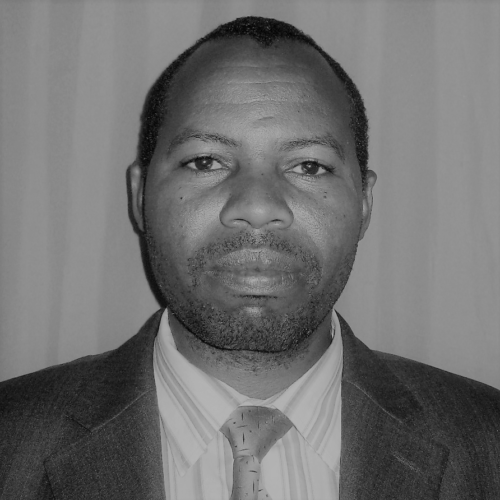
Dr. Onguso Justus
Affiliations:


Prof. Vicki Marsh
Vicki Marsh is an Associate Professor at the Centre for Tropical Medicine and Global Health (CTMGH), Nuffield Department of Medicine, Oxford University, UK and the KEMRI Wellcome Trust Research Programme (KWTRP) in Kenya. At the KWTRP, her research within the Health Systems and Research Ethics department focuses on empirical ethics approaches to strengthening policy and practice in international research, including for community engagement, informed consent, disclosure of genetic findings, benefits and payments, and data sharing and on vulnerability and resilience in research. She has teaching, mentorship and science and ethics governance roles at KWTRP. At CTMGH, she coordinates, teaches and examines on ethics and public engagement in research and public health for an MSc course in Tropical Medicine and International Health. Between 2013 and 2015, she was a member of a UK Nuffield Council on Bioethics working group on ethical issues for research involving children and young people. Vicki’s DPhil thesis focused on ethical issues in research on Sickle Cell Disease in Kenya, including feedback of genetic findings; this work was supervised by Prof Michael Parker, director of Ethox. Originally trained in medicine and general practice in the UK, Vicki has lived in Kenya for more than 25 years, initially as part of the team that established KWTRP in 1990. During this early period, her research on Malaria Home Care was internationally recognised, and informed policy in the Kenya National Malaria Control Programme and the WHO/TDR Roll Back Malaria strategy in the World Health Organization.

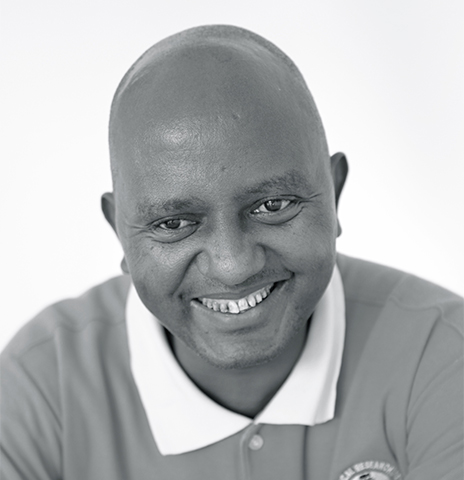
Dr. Joseph Mwangangi
Affiliations:
Joseph graduated with BSc (Zoology, Botany and Geography) from Kenyatta University, Kenya in 1997. He joined KEMRI in 1998. Mwangangi graduated with a PhD degree in Medical Entomology from Kenyatta University in 2007. His research interests are malaria vector biology and ecology, novel approaches to the control of vector borne diseases and the monitoring of insecticide resistance. His current research work includes Integrated Vector Management (IVM) using a community based model that empowers communities and public health stakeholders to participate in disease control. He is a Young Affiliate Fellow of the Academy of Sciences for the Developing World (TWAS) and the TWAS Regional Office for Sub-Saharan Africa (TWAS-ROSSA) for period 2011 – 2015. He is an Official of the Pan African Mosquito Control Association (PAMCA), Kenyan Chapter and member of PAMCA’s coordinating committee.


Dr. Simon Muriu
Affiliations:

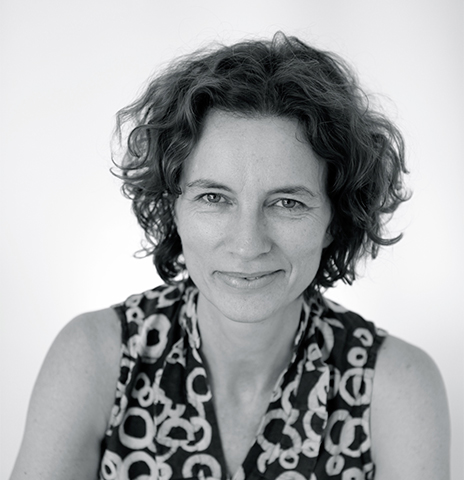
Prof. Sassy Molyneux
Past Students
Sassy Molyneux, is an Associate Professor employed by Oxford University, UK, based at the Kenya Medical Research Institute-Wellcome Trust Research Programme in Kilifi, Kenya. She is a behavioural scientist, with a background in human geography. Her current main research interests include health system finance and governance, responsiveness of health systems to user and population priorities and concerns, and research ethics. A cross-cutting area of interest is producing new thinking, evidence and recommendations around initiatives aimed at strengthening accountability processes in biomedical research and health delivery in sub-Saharan Africa.

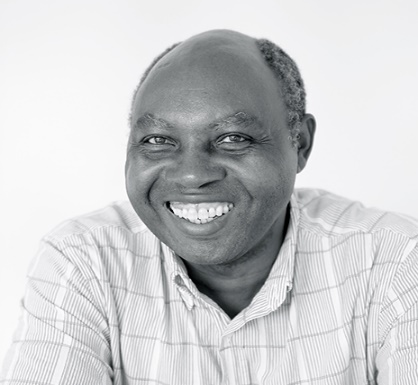
Prof. Charles Mbogo
 Email : CMbogo@kemr-wellcome.org
Email : CMbogo@kemr-wellcome.org Affiliations:
Charles is a public health entomologist with over 20 years’ experience in the conduct of entomological studies in Kenya, Ethiopia and Eritrea. His focus has been the study of malaria vectors and has worked on the large-scale evaluation of insecticide-treated bed nets, insecticide resistance, and integrated vector management (IVM) strategies. He has developed and implemented vector surveillance systems at local and national scales. Charles serves on various national and international technical committees. He maintains a keen interest in translating research into policy and practice and played an important role in the formulation of national policy on IVM. He is the current President of the Pan African Mosquito Control Association (PAMCA), an association of African entomology professionals dedicated to Improving human health through suppression of mosquitoes and mosquito borne diseases.

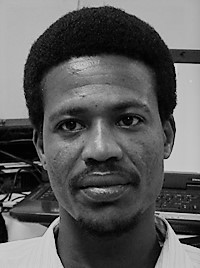
Dr. Joel Ltilitan Bargul
Joel’s broad research interest focuses on the understanding of transmission dynamics of neglected tropical diseases by studying the interactions between insect vectors, disease pathogens and mammalian hosts. In the last ten years, during his MSc and PhD research studies based at icipe (Nairobi), Joel has been studying the biology of tsetse fly and the African trypanosomes. Trypanosomes are transmitted by the tsetse fly and cause severe diseases in man and livestock. Joel completed his PhD at the University of Wuerzburg (Germany) under the mentorship of Prof. Dr. Markus Engstler, Dr. Daniel Masiga, and Dr. Francis McOdimba. He studied the motility of African trypanosomes, as motility is necessary for survival of these parasites. His study demonstrated, for the first time, the reasons for variations in swimming patterns, speeds, and host-tissue distribution of different species of animal African trypanosomes. Animal trypanosomiasis is a neglected tropical disease that causes huge setback to livestock production, hence contributing to poverty. Driven by curiosity, Joel recently collected some little studied blood-feeding hippoboscids from camels in northern Kenya in order to study their role in transmission of trypanosomes. More than 25% of the flies were infected with trypanosomes, and when these flies fed on experimental rabbits, these animals acquired trypanosome infection suggesting that hippoboscids could transmit trypanosomes. These preliminary findings imply that hippoboscids could be important vectors of animal trypanosomiasis. The award of a THRiVE Post-doctoral fellowship is very essential for the success of this research study whose findings will provide information on vectors of animal trypanosomes in northern Kenya and contribute to disease control. The THRiVE-2 fellowship has enabled Joel to initiate research collaborations with Professor Mark Carrington (University of Cambridge) and Dr. Daniel Masiga (icipe, Nairobi). Both Mark and Dan have huge research experience of over 25 years in the field of African trypanosomiasis, and will provide mentorship during the studies.


Dr. Sara Atkinson
 Email : SAtkinson@kemri-wellcome.org
Email : SAtkinson@kemri-wellcome.org Past Students
Biography
I am a Senior Lecturer and Honorary Consultant in Paediatric Infectious Disease in the Department of Paediatrics at the University of Oxford and at the KEMRI-Wellcome Trust Research Programme (KWTRP) in Kilifi, Kenya. I received my medical degree from Guy’s and St Thomas’ Medical School in London and completed clinical training in London, Newcastle and Oxford. My PhD was based at LSHTM and MRC, The Gambia. I first came to KWTRP as a Clinical Research Fellow in 2004 before being appointed as a Clinical Lecturer in Paediatrics at the University of Oxford in 2007. I have been based at KWTRP since 2013.
Research
Both infectious diseases and micronutrient deficiencies are widespread among children living in sub-Saharan Africa. My research questions concern the impact that infections and nutrient deficiencies have on each other. For example: could malaria and other infections be a causal factor in the widespread prevalence of iron deficiency in African children? We found that iron deficiency increases markedly over a malaria season. The hormone hepcidin, the master iron regulator, prevents iron absorption and recycling leading to low iron levels. We found that even asymptomatic malaria infection strongly induces hepcidin in Kenyan children. We are using genetic and epidemiological methods to investigate the impact of malaria on iron deficiency. It is possible that elimination of malaria may also prevent an important cause of iron deficiency for children living in sub-Saharan Africa.
The safety of iron supplementation is an important concern as studies suggest that iron deficiency protects children from malaria and other infections. I am using a Mendelian randomization (MR) approach to address the question of whether a child’s iron status is causally related to their risk of severe malaria and/or bacteraemia. MR is an approach that utilizes the random allocation of genetic variants at conception to investigate causality between an intermediate trait (iron status) and disease (severe infection). In order to identify genetic variants for use in MR, I am conducting the first GWAS study of iron status (including hepcidin) in African populations. Validated genetic variants will be taken forward to large MR case-control studies of severe malaria and bacteraemia using stored samples from the Kilifi Biobank and the MalariaGEN Consortium.

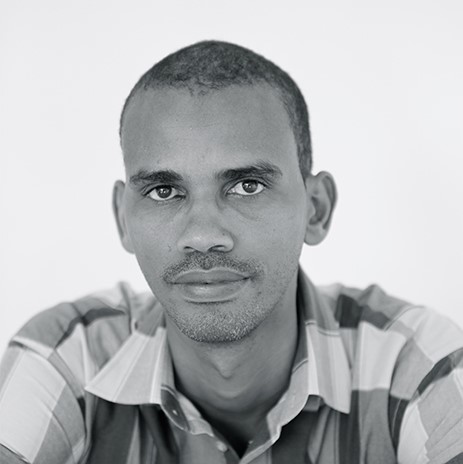
Dr. Abdirahman Abdi
Abdi is molecular biologist with special interest in malaria. Abdi worked with the Programme between 2005-2006 as an intern, then research assistant investigating antimalarial drug resistance. He was then awarded a Ph.D. studentship by the AntiMal International Ph.D. Programme where he joined Prof Christian Doerig’s laboratory at the University of Glasgow working on P. falciparum protein Kinases. He rejoined the Programme in 2010 as Post Doc to work with Dr Peter Bull on PfEMP1 and it is role in the pathogenesis of severe malaria. In 2014 he was awarded a Wellcome Trust Training Fellowship to study the secretome of malaria parasites.

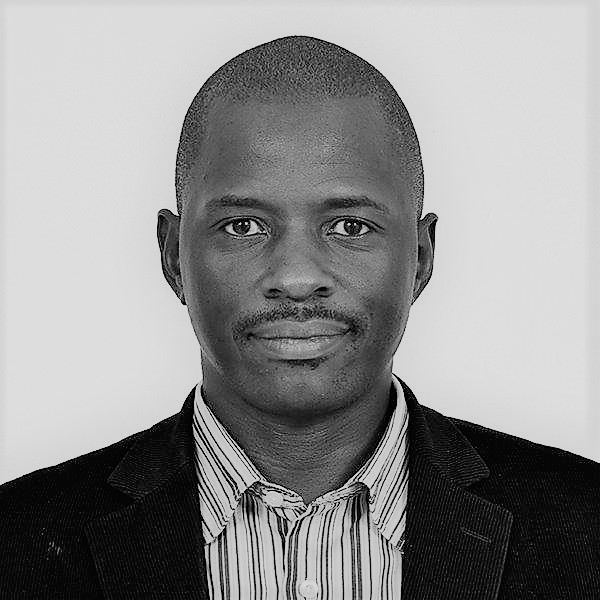
Dr. Fred Eyase
Affiliations:


Dr. Marc Baguelin
Affiliation(s):
London School of Hygiene & Tropical Medicine, UK
I am a mathematical modeller working at the Immunisation department at Public Health England and at the London of Hygiene and Tropical Medicine with Prof. John Edmunds on models of influenza transmission, immunisation and control.
After graduating from the Ecole Centrale de Lille with a MSc in Control engineering from the University of Lille in 2000, I completed a PhD in 2003 on modelling the co-evolution of populations of bacteria and phages. In 2004, I took a position as Research Associate to work in collaboration with the Animal Health Trust, Newmarket, analysing data from equine influenza. I first joined the department of zoology at the University of Cambridge and subsequently the Cambridge Infectious Diseases Consortium in the Department of Veterinary Medicine, following its creation in 2005. I developed a model of transmission of equine influenza including new techniques to infer parameter estimation from sparse data. The model helped to understand the role of compulsory vaccination in changing the dynamics of the equine influenza viruses following the introduction of compulsory vaccination for racehorses in 1981.
In January 2009, I joined the Health Protection Agency (now Public Health England), UK to work with Profs Miller and Edmunds on the modelling and economical evaluation of immunisation policies in the United Kingdom. During the outbreak of pandemic influenza virus in the United Kingdom, I was part of the team of scientists who provided early results to assess the transmission in the United Kingdom. In particular we developed algorithms to integrate epidemiological information with the temporal dynamics of the virus in order to improve estimation of the effective reproduction ratio of the disease. In order to inform vaccination policy decisions with the newly developed pandemic vaccine, I developed with colleagues a model to assess in real time the impact of vaccination strategies. This model incorporates a transmission model fitted to the epidemiological data with health care costs and savings applied to the disease burden. This model was developed and published in real time during the outbreak.
I am also an enthusiastic photographer. Some of my recent work can be seen on my personal website.


Dr. Philip Ayieko
Phillip has undertaken evidence synthesis, economic evaluations and led the analysis of a previous cluster randomised trial. He is currently leading a team of 8 analysts and data managers who support the 14 clinical information network hospitals and generate its 2 monthly reports. He is leading the analysis of a new cluster randomised trial of CIN hospitals to test alternative forms of feedback.


Prof. Graham Medley
Affiliation(s):
London School of Hygiene & Tropical Medicine
I joined the Social and Mathematical Epidemiology group at LSHTM in April 2015, after 21 years at the University of Warwick, and 10 years at Imperial College before that. I moved to the faculty of Public Health and Policy and the Department of Global Health and Development because I have become fascinated by the interaction between infectious disease and the economic, social and political spheres.
My interest is the transmission dynamics of infectious disease, and I have published on many different pathogens and hosts – see [Google] or [ORCID] or [ResearcherID] for a full list. I am particularly interested in understanding how interventions are and should be designed to control infectious disease; and my definition of “interventions” includes both the biological (e.g. immune response) and societal action (e.g. immunisation).
I am on the Board of Reviewing Editors for Science, a handling editor for Mathematical Biosciences, and a Joint Editor for Epidemics.


Dr. Melissa Kapulu
 Email : MKapulu@kemri-wellcome.org
Email : MKapulu@kemri-wellcome.org Melissa attended the University of Zambia (199-2004) where she undertook a BSc in Molecular biology and genetics. Upon receipt of a Commonwealth Scholarship, Melissa moved to London where she read for an MSc in Immunology of Infectious Diseases (2006-2007), at the London School of Hygiene and Tropical Medicine. In 2007, she moved back to Zambia and worked at the University of Zambia (Biological Sciences Department and School of Medicine) and in addition, worked in Paul Kelly’s lab, looking at oral immune responses to vaccination (Tropical Gastroenterology & Nutrition Group) (2007-2009). In 2009, she received further Commonwealth Scholarship funding for DPhil research on malaria transmission-blocking vaccines in Adrian Hill’s lab, Jenner Institute, University of Oxford (2009-2014). In May of 2013, Melissa took up a post-doctoral position with Kevin Marsh at the KEMRI-Wellcome Trust Research Programme in Kilifi working on assessing the infectious reservoir of malaria. Her main interests are in understanding immunological aspects of malaria transmission with the aim of identifying and developing vaccine candidate targets.



